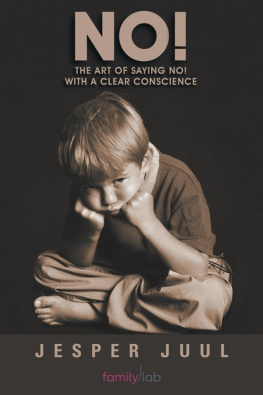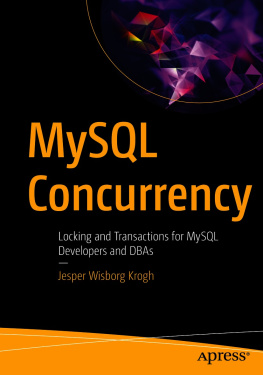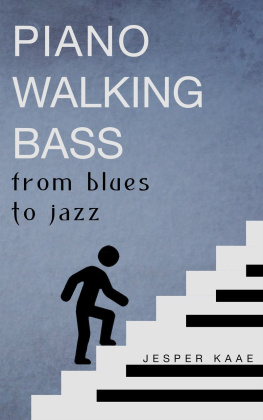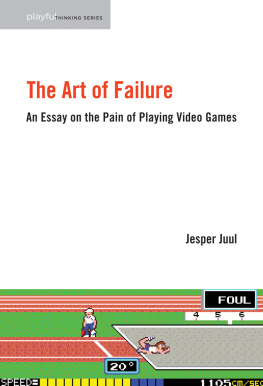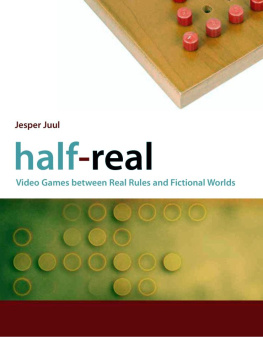NO!
The art of saying No! with a clear conscience
Jesper Juul
Translated by Hayes van der Meer

AuthorHouse
1663 Liberty Drive
Bloomington, IN 47403
www.authorhouse.com
Phone: 1-800-839-8640
2012 by Jesper Juul. All rights reserved.
No part of this book may be reproduced, stored in a retrieval system, or transmitted by any means without the written permission of the author.
www.jesperjuul.com
www.family-lab.com
www.artofsayingno.tv
www.familylab.com.au
Your Competent Child, published by Balboa Press
DVD Your Competent Child at www.textalk.se
English titles published by AuthorHouse:
Family Life
Family Time
Here I am! Who are you?
Published by AuthorHouse 07/20/2012
ISBN: 978-1-4685-7930-7 (sc)
ISBN: 978-1-4685-7931-4 (hc)
ISBN: 978-1-4685-7932-1 (e)
Any people depicted in stock imagery provided by Thinkstock are models, and such images are being used for illustrative purposes only.
Certain stock imagery Thinkstock.
Because of the dynamic nature of the Internet, any web addresses or links contained in this book may have changed since publication and may no longer be valid. The views expressed in this work are solely those of the author and do not necessarily reflect the views of the publisher, and the publisher hereby disclaims any responsibility for them.
Contents
Can I stay up late tonight?
Well, you are still young and you are very tired.
Why cant I have a tattoo?
But you know they look really cheap.
I want an ice cream!
It is not good for you. You might get a sore tummy.
Darling, how about we go to bed early and relax as soon as the kids are asleep?
Do you honestly feel things are relaxed at the moment?
I dont want to go to school.
Ah, come on! You love school.
Darling, I think we should visit your parents this Easter.
But last week you said we never have enough time for each other.
Can I have some money for the party on Saturday?
What happened to your pocket money? You got some the day before yesterday.
These are common and very reasonable questions. But what is going to happen next? The answers were not exactly clear
It all begins with a loving Yes!
A loving relationship always begins with a Yes!
Simply deciding to spend time with someone is in itself a way of saying Yes! to that person. Through conversation we verbally confirm our love in a number of direct and more subtle ways. We say Yes! when we decide to live together and perhaps marry. So we confirm that our love is ready to be put into practice and carried out on a daily basis.
By formalizing our feelings through one little word we are ready to begin our shared journeys. The Yes! marks the reality that fulfillment of a dream is within reach. It also comes with all the commitments and responsibilities that are inevitably part of a shared life.
Every newborn or adopted child has the right to experience this important feeling of acceptance. They should be able to see the loving Yes! when they look into their parents eyes and sense it in their expressions. This is Yes! to a shared starting point of a long journey together.
There are moments in our lives when that little word is not only the most valued treasure but also the biggest gift of all. It is the most telling symbol of someones trust, honesty and willingness to create a space where loneliness no longer exists. It can be an overwhelming yet humbling privilege to receive a first Yes! Be it as a pubescent kiss, the exciting Yes! at a wedding and of course the gaze into a little babys trusting eyes. We are so humbled by this loving feeling that we excitedly promise ourselves to do everything in our power to be deserving of this Yes!
Yet, this commitment that came with the strongest dedication and best intentions, tends to fade in the midst of our daily routines. Gradually, the Yes! ceases to be a gift so freely given. It slowly becomes something that is expected, demanded or a duty. The other person is aware of thisin fact, both sides of the Yes! are aware of it. Things are taken for granted and much is expected. The teacher expects students respect, the in-laws expect to be visited and so on. The pleasure we experience from receiving as well as giving decreases and the love and trust with which it was initially meant disappears just as quickly. In a relationship this is most dramatically felt during the so-called, seven-year itch . When it comes to the relationship with our children it has most likely happened by the point they have learned to speak and their autonomy brings some kind of discord in the parents hopes and expectations.
Important changes occur when parents stop saying Yes! with their hearts and say No! through their behavior. Or when we just say Yeah, yeah which really means No! Then dishonesty enters the relationship and everyone feels trapped. However, the love that exists between parents and children does not die so easily.
An honest No! is a loving answer
At some stage, children will start to say No! yet parents often forget to see this as a gift. Children do not use this little word to whine about something. From time to time parents might use No! as a whinebut not children. Their No! is used with all the good intentions, innocence and honesty of a child. Parents unfortunately, often take this No! personally because it is difficult to hear that children actually say No! to themselves. When young children say No! they have no intention of crossing their parents. They use No! to define themselves and their personal boundaries. They also use No! in order for the parents to learn who the child really istheir child that loves them so completely and unconditionally. Children have no carefully conceived motives behind saying No! but it pays to think of the No! as including intentions of unconditional love.
Much has been said and written about how important it is for children to have boundaries and that adults are able to control childrens behavior. These issues play a dominant part in the field of child-psychology. So much in fact, that you are forgiven for thinking that this is what parenting and child development is all about. This thinking has a widespread and very dedicated following. Accusations of irresponsibility and laziness quickly become the labels that stick to those parents who do not set strict boundaries. This is strongly supported by another primitive trend in childrens upbringing and pedagogy. Namely, the increasing popularity of super-nannies, boot-camps and pop-psychology which claims to be able to convert any troublesome family into a calm, clean and structured unit in just a few days. The people behind these approaches try to convince us that theirs is the best way to live.
It is noticeable and indeed worrying that the need for setting boundaries is growing at the very same time when childrens physical and emotional spaces are decreasing. Most people think that children have become more liberated in their interactions with adults. They also think children have become super-consumers, but they tend to forget the fact that it is no longer possible for children to play, live and grow or indeed do anything without adult supervision. Just a generation ago children had plenty of space and time without adults. That is exactly how they developed what we today call social competence. This is something neither parents, schools, kindergartens or any other institution can teach children. No matter how hard adults try. Todays child has to be well-functioninga label that is glued to children making it impossible for them to move freely.
Next page
